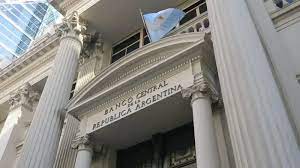The cash-strapped government of Argentina plans to issue 10-year bills to the central bank to earn $3.2 billion in hard currency to cover debt repayments, as per a decree published in the official gazette on Friday.
The nation is facing its greatest economic crisis in twenty years, with rising poverty, depleting foreign currency reserves, and inflation heading towards 200%. The new administration, led by libertarian president Javier Milei is up against these challenges.
It is attempting to reach a settlement and release funds with the International Monetary Fund (IMF) to postpone the assessment of the South American nation’s $44 billion IMF program. The country has imminent debt commitments with creditors.
The IMF mission is scheduled to visit Argentina’s leadership on Friday and into the weekend, with the potential to release up to $3 billion. Nonetheless, the increase in debt indicates that it needs an immediate financial infusion, even if Milei made campaign promises to reduce central bank funding of the Treasury.
“Non-transferable bills remain the same as governments change. The local economist Gabriel Caamaño stated, “There is no magic bullet or panacea. It is still unclear when the seventh IMF program review will be unblocked.”
“Because of this we have to keep damaging the central bank’s balance sheet to avoid default.”
In a daily news conference, presidential spokesman Manuel Adorni stated that the goal of the debt issuance was to enable the government “to meet maturities with private creditors,” but he also claimed that the central bank’s standing would not be harmed by the action.
Even while the central bank’s gross foreign currency reserves have increased since Milei assumed office in December, analysts project that net reserves are still negative by almost $8 billion.
The main producer of grains, which has long suffered from cyclical economic crises, recently paid the IMF around $920 million. In mid-January, it will make a capital contribution to the fund of almost $1.95 billion.

















